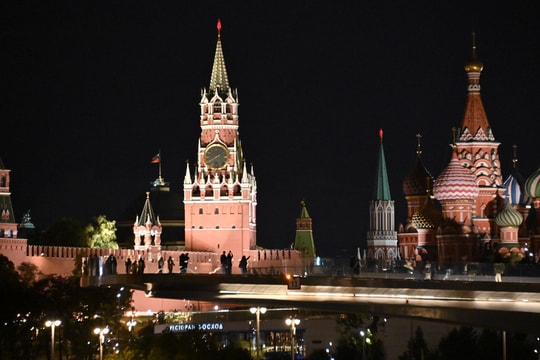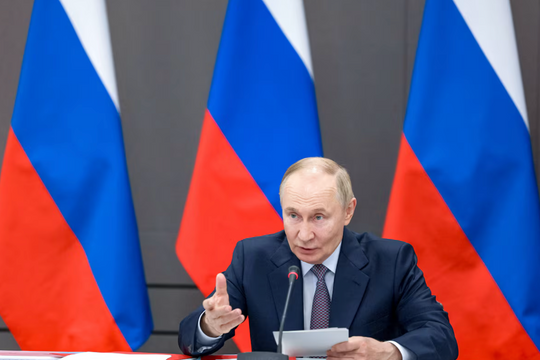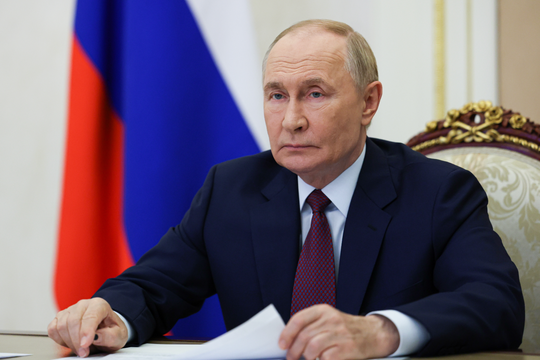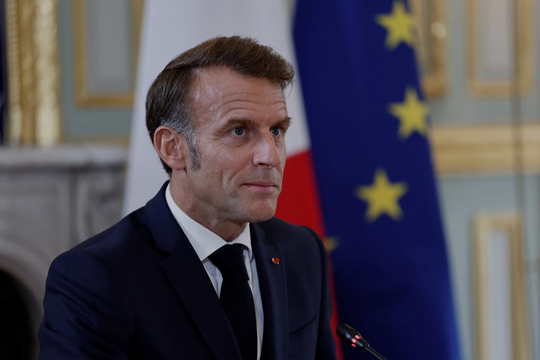Russia - Iran stand side by side in handling the Syrian crisis
While still publicly supporting Syrian President Bashar al-Assad, Russia has recently begun to signal that it would not object to Assad leaving office as part of a peace process in Syria, Reuters reported, citing several diplomats.
 |
Russian President Vladimir Putin and Iranian Supreme Leader Ayatollah Ali Khamenei met in Tehran last month. Photo: Reuters |
Iran, meanwhile, has declared a “unified position” with Russia on the Syria issue, a sign that its staunch opposition to President Assad’s departure is gradually being adjusted to a less drastic direction than before.
Tehran's decision to step up coordination with Moscow was made last month after a meeting between Russian President Vladimir Putin and Iranian Supreme Leader Ayatollah Ali Khamenei, according to an Iranian official familiar with the matter.
Like Russia, Iran has also publicly expressed its stance that Mr. Assad's departure or stay should only be decided through a formal election.
"What we have agreed on is that Iran and Russia will pursue the same policy that benefits Tehran, Moscow and Damascus," the senior Iranian official said. "It is the Syrian people who must decide their fate. But first, stability needs to be restored."
"If the Syrian people want Assad to go, then he must go," he stressed. "If he cannot serve his country and his people, then a more capable successor should do it."
Another Iranian official also confirmed that Tehran and Moscow are "speaking with one voice" on the issue of Syria and the fate of Mr. Assad. "The meeting between Mr. Putin and leader Khamenei was very successful. Now Iran and Russia have the same view on Assad," he said.
Whether President Assad stays or goes is currently the biggest point of disagreement between the major powers when discussing the political process leading to peace in Syria.
US and European officials say Mr Assad has lost credibility because of his repression and abuses of power and is therefore ineligible to run in any elections. But leaders in several other Western countries, Turkey and Saudi Arabia have been reluctant to allow Mr Assad to remain in power during the transition period.
In a meeting to discuss a peace roadmap for Syria held on December 18, with the participation of 17 countries, including the US, Russia, Iran, Türkiye, and Saudi Arabia, US Secretary of State John Kerry said there were still "deep differences" about the fate of Mr. Assad.
How to come up with a ceasefire agreement and plan to hold dialogue sessions between the Syrian opposition and the government to unify the forces and support each other in the fight against the Islamic State (IS) were at the heart of the discussion.
After meeting with Russian President Putin, Iran's Supreme Leader Khamenei publicly criticized the United States, denouncing Washington's policies in the Middle East as a threat to both Moscow and Tehran. He also called on Russia and Iran to work to strengthen bilateral relations.
Russia and Iran are intervening militarily in Syria to support President Assad's government against anti-government forces in a five-year civil war that has claimed the lives of 250,000 people. The two countries, former Cold War rivals, now have an interest in forging a new relationship based on distrust of the West and a desire to compete with the United States for influence in the Middle East.
During the first two ministerial meetings on the Syrian conflict held in Vienna, Austria, Iran reluctantly signed a roadmap built on the so-called Geneva Communiqué issued in June 2012.
The Geneva communique called for a political transition in Syria, which Tehran has never formally accepted because it would mean the end of the Assad regime, according to Reuters.
Western diplomats say Iran will have to move closer to Russia and abandon President Assad completely if that is an effective diplomatic solution to end the war in Syria.
The United States, Europe and Gulf Arab states are adamant that Mr. Assad must step down and should not participate in any future elections.
The key for Russia and Iran now is to figure out exactly how to get rid of the Assad regime, according to a Western official. Even if the Iranians start to accept the possibility of President Assad leaving office, that goal will be very difficult to achieve.
According to VNE
| RELATED NEWS |
|---|








